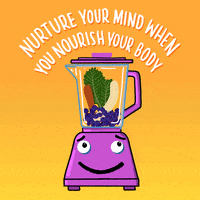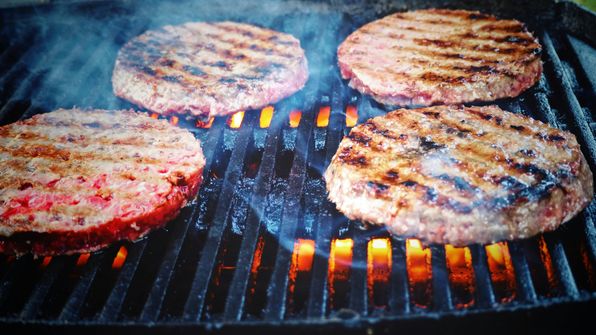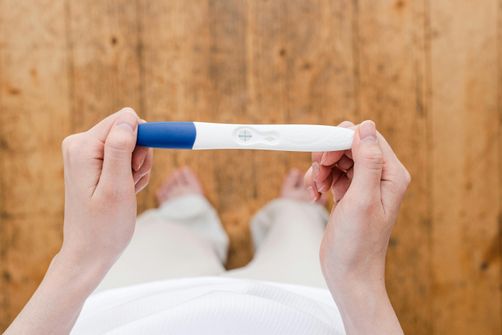
Social Success on the Carnivore Diet: Tips for Staying Committed at Gatherings and Restaurants
Social gatherings often mean a spread of carb-heavy foods and tempting desserts that can make sticking to the carnivore diet feel tricky. But with a b...

The MIND diet, which combines elements of the Mediterranean and DASH diets, is widely praised for its potential to improve brain health and reduce the risk of cognitive decline. However, like any diet, it’s not without its potential drawbacks, particularly for women who may have unique nutritional needs or lifestyle challenges.
Let’s explore some of the potential disadvantages of the MIND diet for women, backed by facts, numbers, and research.

While the MIND diet emphasizes the consumption of brain-healthy foods like leafy greens, berries, nuts, and fish, it may lead to an imbalance in other essential nutrients if not carefully planned. For instance, the diet encourages limited intake of red meat, butter, and sweets, which could result in deficiencies in certain nutrients like iron, calcium, and vitamin D, especially for women who are already at risk for these deficiencies.
Stat Alert: According to Nutrients, women are more likely than men to suffer from iron deficiency, with 10% of women aged 12-49 being iron deficient. Red meat is a primary source of heme iron, which is more easily absorbed by the body compared to non-heme iron found in plant-based foods. Women following the MIND diet might need to be more vigilant about their iron intake to avoid deficiencies.
The MIND diet prioritizes fresh produce, whole grains, nuts, and fish, which can be more expensive than processed or convenience foods. For women on a tight budget or those living in areas with limited access to fresh, high-quality ingredients, adhering to the MIND diet might be financially challenging.
Fact Check: According to Harvard healthy diets rich in fruits, vegetables, and whole grains cost about $1.50 more per day compared to less healthy diets. Over time, this cost can add up, making it difficult for some women to maintain the diet long-term.
 to support their brain and overall wellness.](/_astro/family-shopping-healthy-food.H23xKxM7_1MhCfM.jpg)
The MIND diet emphasizes whole, unprocessed foods, which often require more time and effort to prepare compared to pre-packaged or convenience foods. For women with busy schedules—whether due to work, caregiving responsibilities, or other commitments—finding the time to shop for and prepare MIND diet-compliant meals can be a significant challenge.
Research Insight: A survey conducted by the Public Health Nutrition found that 43% of women reported that lack of time was a major barrier to eating healthy. This could make the MIND diet difficult to follow consistently for those with demanding lifestyles.
Dietary changes can sometimes clash with social and cultural norms, especially in social settings where traditional or comfort foods are the norm. For women who frequently attend family gatherings, social events, or cultural celebrations, adhering to the MIND diet may feel restrictive or socially isolating.
Stat to Consider: According to a report in the Forbes, 65% of Americans say they eat more when dining with friends and family. The pressure to conform to group eating habits or cultural traditions can make it difficult for women to stick to the MIND diet in social settings.
While the MIND diet is based on healthy principles, there’s a risk that some women might overemphasize certain foods while neglecting others. For example, the diet encourages regular consumption of berries and nuts, but if these foods are over-consumed at the expense of a balanced intake of other nutrients, it could lead to unintended health issues, such as excessive calorie intake or nutrient imbalances.
Nutrient Watch: Overconsumption of nuts, which are calorie-dense, can lead to weight gain if not balanced with other low-calorie, nutrient-rich foods. According to the Cleveland Clinic, a single ounce of almonds contains around 160 calories, and mindlessly snacking on nuts could easily add up to a significant portion of daily calorie needs.
The MIND diet provides general guidelines rather than strict rules, which can lead to misinterpretation or inconsistent adherence. For example, the recommendation to limit butter to less than a tablespoon per day may be overlooked by those who aren’t diligent about measuring portions, potentially leading to higher saturated fat intake than intended.
Fact Check: The importance of keeping saturated fat intake to less than 7% of daily calories to reduce heart disease risk. Misinterpreting or not strictly following MIND diet guidelines could inadvertently lead to higher fat consumption, especially if portion sizes aren’t monitored.
A: Yes, if not carefully planned, the MIND diet can potentially lead to deficiencies in certain nutrients like iron, calcium, and vitamin D, especially since it limits red meat, butter, and sweets. Women, who are already at higher risk for iron deficiency, should be vigilant about incorporating alternative sources of these nutrients or consider supplements if necessary.
A: The MIND diet can be more costly than other diets because it emphasizes fresh produce, whole grains, nuts, and fish, which tend to be more expensive than processed or convenience foods. Studies have shown that healthy diets can cost about $1.50 more per day compared to less healthy diets, which may be a consideration for women on a budget.
A: The MIND diet often requires more time for meal preparation, as it focuses on whole, unprocessed foods. For women with busy schedules, finding the time to shop for and cook these meals can be challenging. Lack of time is a common barrier to maintaining a healthy diet.
A: Adhering to the MIND diet can be difficult in social settings or during cultural celebrations where traditional or comfort foods are prevalent. Women may find it challenging to stick to the diet in these situations, leading to feelings of restriction or social isolation.
A: Yes, while the MIND diet promotes healthy foods like nuts and berries, there is a risk of overconsumption, especially with calorie-dense foods like nuts. Overeating these foods without balancing with other nutrients can lead to unintended weight gain or nutrient imbalances.
A: The MIND diet provides general guidelines rather than strict rules, which can lead to misinterpretation. For example, recommendations like limiting butter to less than a tablespoon per day may be overlooked if portions aren’t carefully monitored, potentially increasing saturated fat intake beyond the intended limits.
The MIND diet offers numerous potential benefits, particularly for brain health and cognitive function. However, like any diet, it’s important to be aware of potential disadvantages, especially for women who may have unique nutritional needs or lifestyle constraints. Understanding these challenges can help you make informed decisions about how to adapt the MIND diet to fit your personal health goals and circumstances.
If you’re considering the MIND diet, it’s crucial to plan meals carefully, monitor your intake of essential nutrients, and be mindful of potential obstacles like cost, time, and social pressures. Consulting with a healthcare provider or a nutritionist can also help tailor the diet to your specific needs, ensuring that you reap the benefits while minimizing any potential downsides.

Social gatherings often mean a spread of carb-heavy foods and tempting desserts that can make sticking to the carnivore diet feel tricky. But with a b...

The carnivore diet is often seen as straightforward: eat meat, keep it simple. But adapting it seasonally can bring freshness, variety, and local flav...

The carnivore diet has become increasingly popular, but like any extreme dietary approach, it raises important questions—especially for women concerne...

The carnivore diet has gained attention globally, but women’s experiences and cultural approaches to animal-based eating vary widely depending on wher...

Living with Chronic Obstructive Pulmonary Disease (COPD) can make everyday activities feel like a marathon, especially for women who are juggling heal...